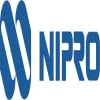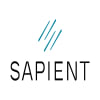Dive Brief:
- Gilead Sciences Inc. will continue to feel the financial sting this year of declining revenues from its hepatitis C business, forecasting combined 2018 sales of the drugs reaching only a fifth of what the biotech recorded at the height of its commercial success three years ago.
- Altogether, sales of Harvoni, Sovaldi, Epclusa and Vosevi are expected to bring in between $3.5 billion and $4 billion this year — about 60% less than 2017's total of $9.1 billion. Overall 2017 revenues, meanwhile, fell 14% year over year to just over $23 billion.
- Company executives anticipate the hepatitis C market will begin to stabilize by the middle of this year, potentially positioning Gilead to rebound. Yet a return to growth remains uncertain, dependent on strengthening performance in HIV and advances in newer therapeutic areas like NASH and cell therapy.
Dive Insight:
Over the past two years, Gilead has watched sales of its once dominant hepatitis C drugs rapidly erode, due in part to the drug's efficacy in essentially curing most patients of the liver disease.
After Gilead's Sovaldi (sofosbuvir) and Harvoni (ledipasvir/sofosbuvir) were first launched, tens of thousands of new patients began treatment — pushing annual revenues from the drugs to nearly $20 billion in 2015. That bolus of patients has ebbed considerably, while new competition both stole market share and brought down net prices.
Even though investors had expected a downward slide, many were taken by surprise last year at the steepness of the drugs' decline. Gilead predicts between just $3.5 billion and $4 billion in hepatitis C revenues in 2018.

On a conference call Tuesday, company executives sought to turn the page on the past few years and look ahead to an eventual return to growth.
"Gilead's HCV revenue should be a more predictable, albeit smaller, piece of our financial story," said company CEO John Milligan on a Feb. 6 investor call.
"By removing most of the overhang of declining HCV revenues going forward, we can focus on the positive financial trends driven by the continued uptake of TAF-containing regimens and short-term and long-term growth through Yescarta, selonsertib and filgotinib."
Analysts appeared optimistic about Gilead's prospects for rebounding.
Jefferies analyst Michael Yee, for example, wrote a Feb. 6 note entitled "The early turnaround is beginning." Yee anticipates higher revenues from the company's HIV drugs, as well as potential launches of several experimental medicines, will fuel an "early growth cycle."
That narrative will look a lot more solid if the Food and Drug Administration approves Gilead's triple combination treatment for HIV next week, with a decision expected by Feb. 12. The drug, referred to as BIC/FTC/TAF, pairs a novel compound called bictegravir with two already approved drugs. Four late-stage studies demonstrated the combo's viral suppression capabilities matched that of current treatment regimens containing GlaxoSmithKline plc's Tivicay (dolutegravir).
Gilead expects the combo, taken as a single pill, will prompt some patients to switch treatments and anticipates a strong launch.
Yet challenges still stand in the way of Gilead's comeback story. In HIV, GSK recently won approval of a two-drug combo and looks set to continue to compete. Other opportunities, such as Gilead's JAK inhibitor filgotinib and efforts in non-alcoholic steatohepatitis (NASH), face either entrenched rivals or unproven commercial markets.
Key clinical data will come this year for filgotinib, and Gilead thinks it could launch a treatment for NASH by 2020 if all goes according to plan.
Cell therapy, where Gilead made a $11.9 billion bet on Kite Pharma and its pipeline of CAR-T treatments, could eventually become a major business for the biotech. With approval of Yescarta (axicabtagene ciloleucel) in lymphoma, Gilead is an unquestioned leader in the space.
But what is still in question is whether CAR-T will turn out to be a commercial success. Given Yescarta's complexity, Gilead has rolled the treatment out to new centers with deliberate care. By mid year, however, the biotech hopes to have enough centers certified in administering Yescarta to cover 80% of the estimated 7,500 patients eligible to receive the therapy in the U.S.
Sales of the complex therapy in the fourth quarter totaled $7 million, implying less than 20 patients had received the $373,000 treatment during the three month period. Even if Yescarta grows as fast as analysts expect, it won't move the needle financially for some time.
In the nearer term, Gilead still has the resources to be an active acquirer. At the end of 2017, Gilead held $36.7 billion in cash and equivalents. Guidance from the company suggests about $28 billion of that will be repatriated to the U.S. due to the recent changes in the tax code.
Executive comments mostly focused on acquiring new technology around cell therapy, such as gene editing capabilities, but other areas might be in reach as well.











